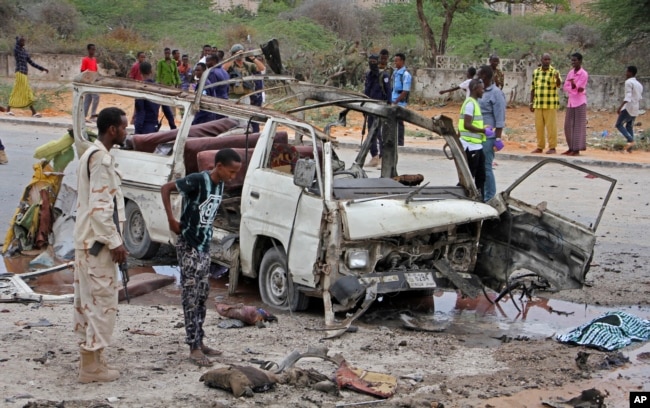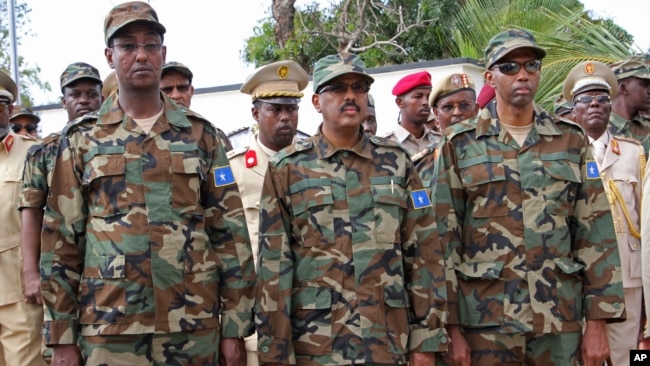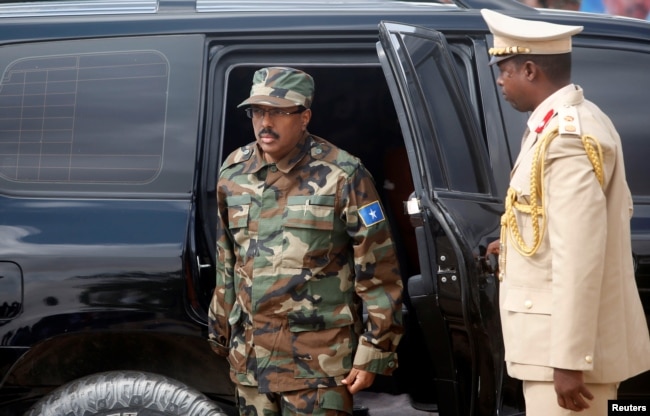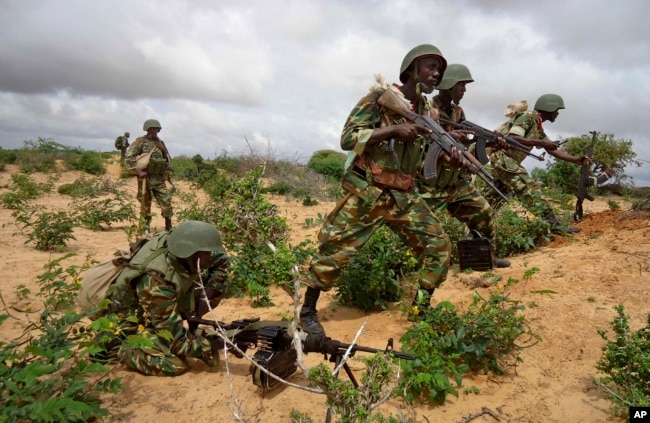Somali President Vows to Eradicate Militants as He Offers Peace Talks
Somali President Mohamed Abdullahi Mohamed, center, Somalia Prime Minister Hassan Ali Khayre, right , and Defense Minister Abdirashid Abdulahi Mohamed watch a military unit during celebrations marking the 57th anniversary since Somali military was founded, in Mogadishu, Somalia, April 12, 2017.
Somali’s president vowed Wednesday that his administration will eradicate the terrorist militant group al-Shabab across Somalia within two years, and he offered its leaders peace talks.
Mohamed Abdullahi Mohamed, better known as Farmajo, was speaking at a ceremony marking the 57th anniversary of the foundation of the Somali National Army, which was held at the compound of the Ministry of Defense in Mogadishu.
“We confirm to the Somali people that we are prepared and within two years’ period we will eradicate al-Shabab from all areas they are present in Somalia,” the president said.
He said that, after more than a decade of the insurgency, al-Shabab still is not capable of overthrowing the Somali government. Mohamed says his government, therefore, is calling on al-Shabab leaders to engage in peace talks before they are forcibly dislodged from their hideouts across the country.
Somali President Mohamed Abdullahi Mohamed arrives for celebrations to mark the 57th anniversary of the Somali National Armed Forces in the capital Mogadishu, April 12, 2017.
“We are ready to talk to al-Shabab, including its leaders. We say to the leadership of al-Shabab that you have been fighting for more than 10 years and still you cannot overthrow the government, which has international support and military power. We tell you if you do not accept peace, we will come to you at your hideouts,” Mohamed said. “You cannot destroy the government, but you have been destroying the hope of the Somali people.”
Mohamed’s remarks come a week after he declared that the country is at war with al-Shabab, and he gave the group 60 days to surrender in return for education and jobs. He also replaced the country’s military and intelligence chiefs, while instructing the army to prepare a new offensive against al-Shabab extremists.
Increased attacks
In response to the president’s declaration of war with al-Shabab, the militants have increased their attacks in Mogadishu, the country’s capital.
In one of the attacks on Sunday, the new Commander of the Somali National Army (SNA), Gen. Mohamed Ahmed Jimale, escaped a car bomb explosion close to the Defense Ministry where Wednesday’s army anniversary commemoration was held.



